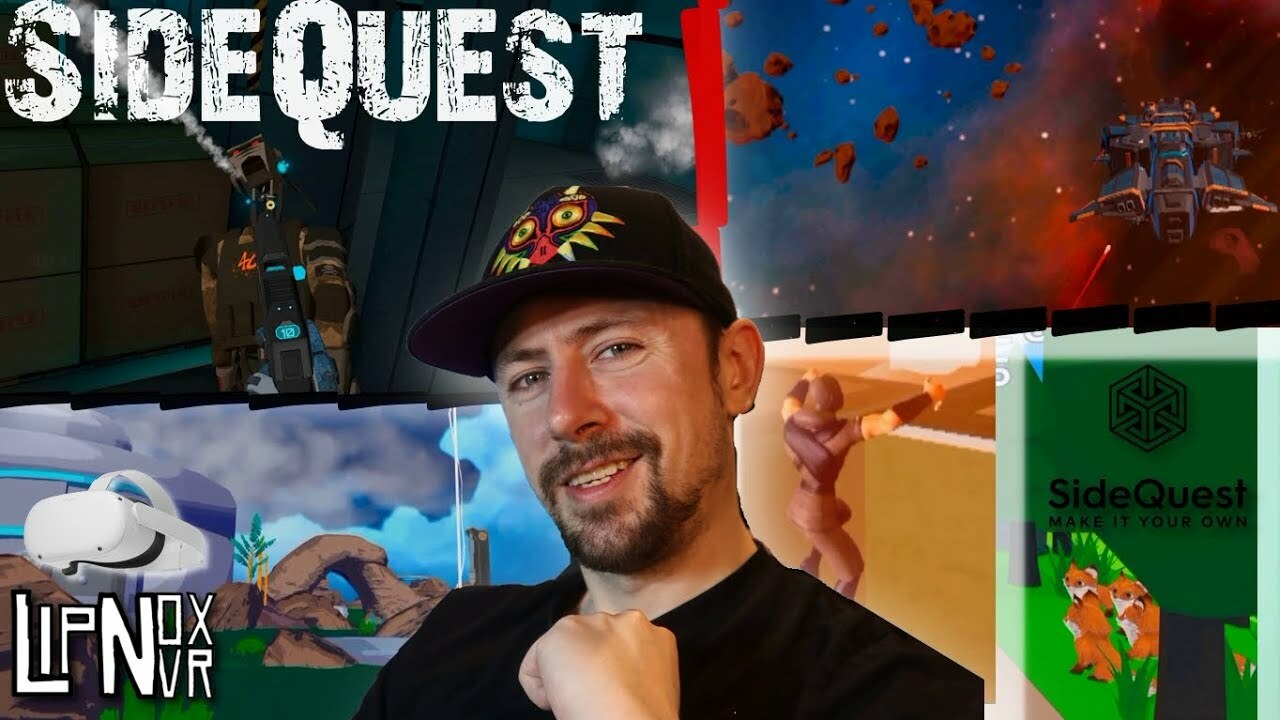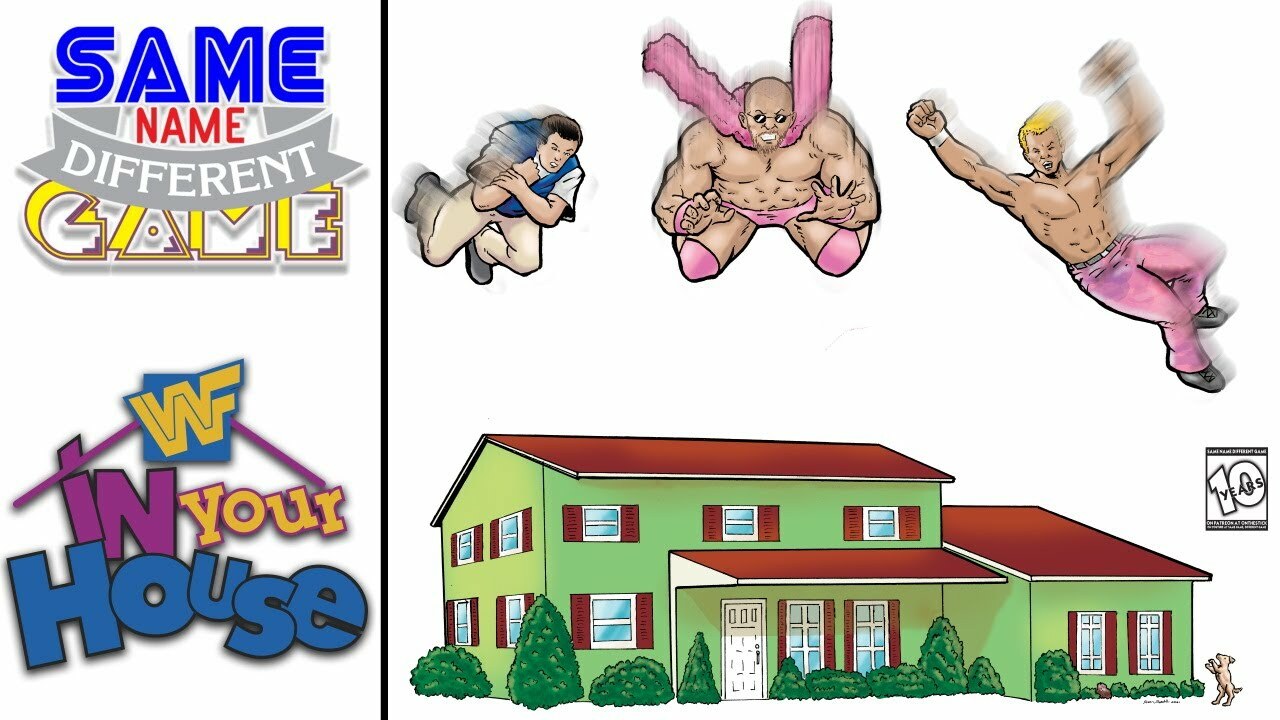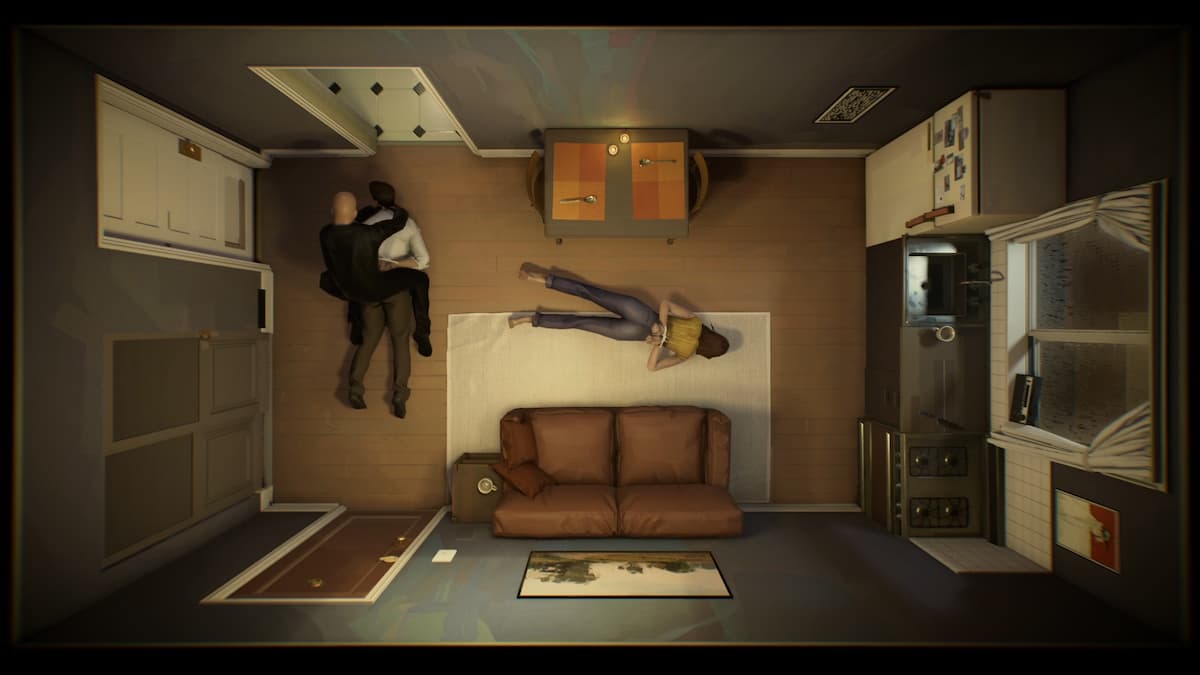Share
It’s often been said that MONOPOLY is one of those games that drives people apart. FOR DON PHILLIP GIBSON, IT BROUGHT THE WORLD JUST A LITTLE BIT CLOSER.
In 1985, Don Phillip Gibson released MONOPOLY for IBM-compatible computers. His iteration of the property-trading game became a hit in the early days of digital software distribution and earned him fan mail from thousands of players, a sternly worded letter from Parker Brothers, and a phone call from a curious game design professor thirty years later. I wanted to know more about the creator behind my favorite version of the friendship-testing board game and see if he had done anything else. After all, that’s what game creators do, right? Create games? What else had this savvy software engineer built?
Don Phillip Gibson was born on December 23, 1939, along with his twin brother Benn. They were raised in the town of Winfield, Kansas, a short hop from the Oklahoma border. I never got the opportunity to meet Don in person or visit Winfield – we spoke over the phone and by email, but I never found the time to make the cross-country journey to the small city. What I would come to learn from my talks with him and those close to him was that the rest of the world knew Don for MONOPOLY, but in Winfield he was the beloved doctor and church organist long before his name graced software collections and bulletin boards. By the time his first version of MONOPOLY was released, Don was in his mid-forties, and to the people that knew him best, the game was simply an anecdote.
Lou Tharp, a research volunteer at the Cowley County Historical Society and Museum, mailed me a series of papers that she had compiled on the Gibson family. To say Don and his family had an impact on their community would be an understatement. Don was a third-generation osteopath, following in the footsteps of his father and grandfather, and joined his father’s practice after his residency. Lou grew up with the Gibson boys, playing together and going to church. Don became the family doctor for the Tharps (and many other families) when he returned to Winfield in the summer of 1965. He delivered lots of kids for families over the years. She described the Gibson’s house, the pipe organ the boys built there, and how they were like brothers to her… but never mentioned his game.

“I suspect our interests differ. You are more likely to classify yourself as a gamer. I am the guy who wants to see how the tool works.”
Perhaps due to the complexity of work and skill required, or the multimedia nature of their creations, we can fall into the trap of imagining game designers as young visionaries, singularly focused on their industry. Don was far from this – his curiosity and creativity may have steered him to create a game enjoyed by thousands around the world, but his hometown community continued to associate his name with the smiling face of their doctor or the pleasant tunes of their church organist, not the digitized rattle of dice that became such an iconic element of his game or the vivid colored windows that made up its user interface.
That’s not to say the man wasn’t tech-savvy – far from it. Don loved to both learn and experiment with computers. When we spoke in 2016, he told me the story of how his brother Benn, who had been working in the college music department in Ohio many decades prior, went from enrolling in a free BASIC programming course to teaching it there. When Benn returned to Winfield as a college administrator, he saw the state of medical billing software at the clinic that Don and his father were running. Benn had also stumbled upon a Wang Computers dealership in nearby Wichita that had gotten another medical practice’s setup and was willing to share the rights to the system. The Gibson doctors decided to try and future-proof this setup, and Don got to work.
My dad and I decided to go big enough initially that we would never have to replace those big disks and got the 20 Mb right off the bat. It was 36″ diameter. Please let my memory be wrong and that it was at least 200 Gb.
Don Phillip Gibson
It was this BASIC system that gave Don his window into programming. The original package was not the most user-friendly design, but that only encouraged Don to begin tinkering to fix it. Running uncompiled code like BASIC was an easy place for him to jump in and pick up the language. For nearly ten years, computers became a bit of a hobby, or at least, something that Don recognized as a means to an end. By learning how to code, he could satisfy his desire for understanding how programs worked, power his family practice without breaking the bank for commercial software, and even have a little fun along the way. After all, if you’re going to learn to program, why not program a game – something where the rules are perfectly understood?
The story of Don Phillip Gibson’s MONOPOLY really starts here – and with the RadioShack Tandy 1000.

[When] Borland offered a new Turbo Pascal language, complete with a sexy-scholastic name, that could do sixteen graphics on a Radio Shack Tandy 1000 I ran right down to the store. How could I go wrong with two giants of the industry?
Don Phillip Gibson
(Image from Byte Magazine’s comprehensive review of the Tandy 1000, Volume 10 #8, Page 266, August 1985, via Internet Archive)
Two things were born in 1984 – your humble author, and RadioShack’s Tandy 1000 computer. Boasting sixteen colors, a 5.25″ floppy drive, DOS, and a fairly low price point, the Tandy 1000 was an easy computer for nationwide titan RadioShack to sell to its large customer base.
Don immediately took to learning Borland Turbo Pascal by building MONOPOLY. Finding it more fun to work with than BASIC, he set about building variables like ThisIsTheNumberOfHousesLeftOnConnecticut. Still, Turbo Pascal’s limitations caused him issues, too – not being able to produce an EXE, his program needed to shift COM segments from disk to memory constantly to operate. When it became clear to him that Tandy and Borland were not dominating the industry and Windows’ RGB graphics were the future, he switched the program over and uploaded the revision to a BBS, or Bulletin Board System. These early online services allowed users to dial in via modem and upload or download programs, among other features.
Jason Scott works at the Internet Archive where Gibson’s MONOPOLY can be played today directly through a web browser. In addition to games, he’s preserved bulletin board file lists on his own site, TEXTFILES, as a snapshot into what was available in that time. As he puts it:
Why include such a mundane aspect of the BBS world? Well, for the same reason that it was great that people took random street shots of cities throughout the last century. Even though they seemed boring and uneventful, the progression of time away from when the picture was taken gives it interest. Maybe someone will browse a file list and see a program that was their favorite; maybe they’ll see that there was a embryonic version of a program they use to this day, that was billed a lot different. No matter; there’s a thousand stories buried in these listings. You might hear them tell one to you.
Jason Scott, TEXTFILES
The Access System of Huntsville, Alabama listed Don Phillip Gibson’s MONOPOLY for download on their main directory for games. The rather extensive file listing was itself created using Wayne G. Maas’ Directory Manipulation System (“WGM-DMS”), a PCBoard utility for sysops that creates directory headers, conference directory files, bulletin files, and master file listings. Just like MONOPOLY, WGM-DMS was created in Borland Turbo Pascal by a lone enthusiast.
MONOPOLY’s presence in the BBS world was a success. The 9th and Main BBS operating out of Winfield was the primary support board for his MONOPOLY game, and included the Turbo Pascal source files. Other BBS locales quickly added compressed ZIP files of Don’s game to their lists. The doctor’s MONOPOLY went viral.

“If you like Monopoly(TM), you need to get this.”
“If you encounter any logic errors or problems in the program, please let me know. If you enjoy it, please let me know too. Programmers need compliments.”
As Don continued to iterate and debug his MONOPOLY game, fan letters began pouring in by the hundreds to his Winfield home. This spurred him on to even more innovative design choices. In one version of his game, Don added support for text-to-speech tools for blind players that would read the status of the game during play. Another included a French translation of the game, which Don produced with help from translators in both Kansas and Paris, including the French version of the Community Chest and Chance cards. Another still was built in Swedish, entirely translated by Ivar Suneson, a fan in Huddinge, Sweden. He also got some assistance from a fan in Texas, who had taught himself assembly language, that provided group-related statements that helped him get the most out of the sixteen-color palette.
Thousands of people downloaded Don’s MONOPOLY over the years from various BBS hosts, and the rapid proliferation of the game to and from servers worldwide endeared him to a generation of PC enthusiasts and gamers. Don’s generous collection of thank-you letters piled up in Winfield. All the while, he expressly encouraged free distribution of his game, while prohibiting charging anything for its digital distribution and limiting physical distribution to the cost of production and shipping to roughly $6 USD.
As Don told me, some of his favorite letters to receive were names he knew:
Neil Rubenking, a well-known author on the programming magazine scene back then, gave hints that the next versions of Windows really would have windows-like boxes that were placed variously around the screen. So I put window things into my program. A few months later I got a personal rave review of the game from him.
Steve Martin sent a hand-written thank you, bold black ink strokes on heavy ivory paper, saying that all the guys liked to play the game between takes on the set.
Don Phillip Gibson

Of course, these weren’t the only letters Don would receive. By 1987, Don began receiving, as he put it, “Very Sternly Hand-Delivered Envelopes and Letters” from Parker Brothers, the owners of the rights to MONOPOLY, explaining “what a wretched thief of their intellectual property” he was, so he agreed to cease his distribution of the freeware. By then, however, it was largely out of his hands – fans continued to play, preserve, and distribute Don Phillip Gibson’s MONOPOLY on bulletin boards across the world.
It’s just as well that they did as soon as they did. Chips were going rapidly through 86/286/386 etc. series and I found no real time correlation of the way they handled timed events. If you wanted a dice to make a sound for 0.2 seconds in the 86 processor, there’s no telling what length that sound would be in a 386. Those noises that made the dice roll and the initial march of a playing piece were probably the strongest attraction to players.
Don Phillip Gibson
“of course, the content of this file is meaningless, but it demonstrates the phenomenon.”

One of the real manifestations of community from the computing fans of the early eighties, as the personal computer was making its way into more and more homes, was the co-reliance of discovery and practice that came from the technology’s early adopters. The ability to share knowledge is what empowers communities and enables them to grow together. While our modern web, social media, and global interconnectivity make this seem archaic, sharing tips and tricks for using computers through magazines and bulletin boards was a real boon to those first making leaps into the digital world.
Don was no exception, sharing his experiences ending batch files in this short user-submitted tip in the User-to-User section of PC Mag. He thoughtfully provides his code as an example, and the response gets into the management of carriage returns, line feeds, and the idiosyncrasies of early DOS incarnations. These simple, small details are valuable to computer enthusiasts building their own software.
Of course, submitting articles to the publisher’s office was not as simple as firing off a tweet. To submit articles, writers could dial in to PC MagNet, an online service the magazine provided for readers to view issue information, leave messages for the editors, and submit articles. Writers would have to set their modem to 300 or 1200 baud, 7 data bits, even parity, 1 stop bit, full duplex, and dial a toll-free number that would then connect and give the user a host name prompt. Entering PHONES would provide a directory of local numbers. From there, a secondary connection with the command CIS with the username 177000,5000, the password PC*MAGNET, and the agreement number Z10D9000 would allow users to upload their letters to the system.
Or, if you don’t mind the postage, mailing the printed letter along with a floppy worked.
“maybe this guy really is a little crazy.”
Understanding Don helped me refocus my idea of what it meant to be a game designer. It’s easy to fall into the trap of imagining it as an all-encompassing thing, like a career or identity. It’s easy to imagine games being made for many purposes – training simulators, educational titles, entertainment, etc., yet the author retains this illusion of dedicated professional or hard-working individual. Why not a hobbyist? Don’s use of MONOPOLY as the vehicle to learn programming as a way to manage records for his doctor’s office is a wonderfully refreshing take on the purpose of games, and a reminder that even something as simple as a self-made exercise in learning to code can still bring joy to thousands of people worldwide.
The last conversation I had with Don about his MONOPOLY game involved getting it to work on modern computers. When I reached out to let him know that his game was quite playable on modern DOSBox incarnations, he was elated.
When you praised DOSBox last week, I could only think “maybe this guy really is a little crazy.” I had tried that route a couple of times before, maybe fifteen and ten years ago, with lots of frustration and no success. Nonetheless I tried once again today. WOW. Those guys have really nailed it for this game! It works! Thanks.
Don Phillip Gibson
Of course, true to form, it was hardly the only topic of conversation. We swapped stories about how both of us had worked so hard to try to preserve our old phone numbers. My story was a bit more modern – carefully bouncing the phone line between cells and home lines to hold on to it, even when leaving the state. His story was far more intriguing, as was usually the case when we spoke. He had quite a lot of fun telling me about the switchboard functions, his maternal grandfather’s years engineering for Southwestern Bell, and how their family mysteriously got their old phone numbers back after his grandfather snuck back into work to do it.
It has been years since I spoke with Don. His family and friends were all so supportive when I reached out to them about his life, sharing stories and notes from the times they spent together. His nieces were excited to find out Don’s version of MONOPOLY was still playable on the Internet Archive. His grandson, who had heard about the game but never seen it, is looking forward to trying it out for the first time. Instead of them sharing Don’s game with me, I was sharing Don’s game with them.
Don Phillip Gibson passed away in 2018, at the age of 78.

Don Phillip Gibson, D.O.
12/23/1939 – 03/08/2018
You can watch Don Phillip Gibson’s MONOPOLY in action on our YouTube channel, Winterion Game Studios, by visiting watch.winterion.com. The complete game is played in a six-part series as part of Season Five of IONGAMING.
Watch the first episode here:
One final note: As a fan of Retroware for over a decade, I’m eternally indebted to John and Lance for creating it, and to the dozens of kind and talented content creators that have passed through these halls over the years for their contributions to the discourse. I’m grateful to have the opportunity to write here, and hope that my work reflects both the steps they paved and the bright road ahead for the entire Retroware team. Thank you.




